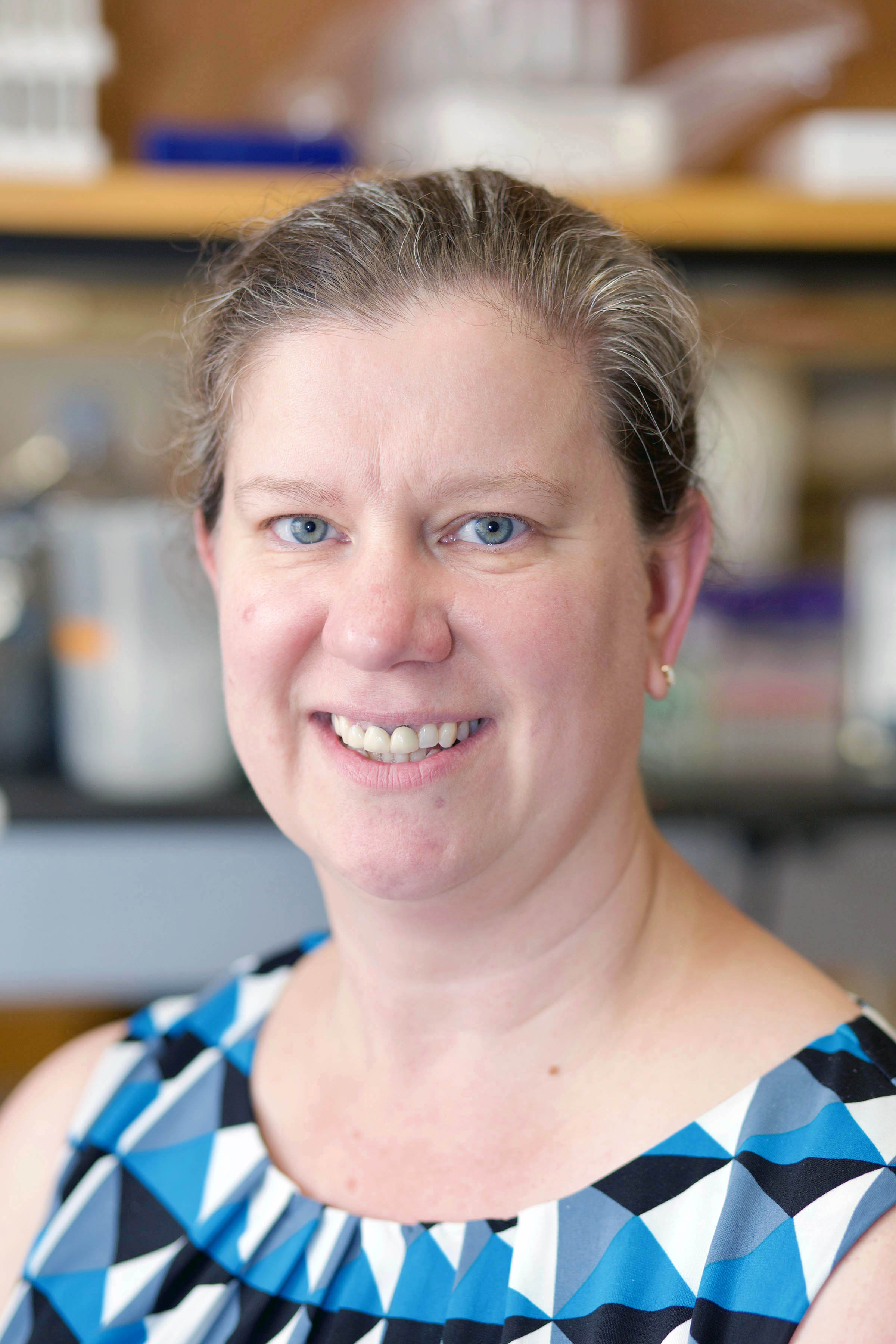

Laurie Harrington, Ph.D., associate professor in the Department of Cell, Developmental and Integrative Biology (CDIB), is the latest winner of the School of Medicine’s Featured Discovery. This initiative celebrates important research from School of Medicine faculty members.
Harrington’s study, “Mitochondrial Oxidative Phosphorylation Regulates the Fate Decision between Pathogenic Th17 and Regulatory T Cells,” was recently published in the journal Cell Reports. Harrington collaborated with UAB faculty in the Departments of Pathology, Microbiology, and CDIB, as well as faculty in the Department of Pathology at New York University on the study. She and her team found that early exposure of CD4+ T-cells to oligomycin imprinted the Foxp3 fate decision when they were exposed to Th17-polarizing conditions.
Harrington says her study “found that mitochondrial oxidative phosphorylation is important for the differentiation of pathogenic, autoreactive Th17 effector CD4 T cells and that inhibition of this pathway suppressed Th17 development and Th17 mediated autoimmunity. Importantly, blockade of oxidative phosphorylation led to the emergence of Foxp3+ regulatory CD4 T (Treg) cells. Mechanistically, we showed that oxidative phosphorylation regulates the strength of the T cell receptor signal and that this subsequently controls the induction of the key transcription factor BATF.”
Her research on T-cell receptor signaling, as well as the inhibition of mitochondrial OXPHOS and Th17 pathogenicity, will truly make a difference for many patients. Modifying the fate of CD4+ T-cells to transition from either inflammatory T cells or regulatory T cells is extremely relevant to inflammatory and autoimmune conditions.
This knowledge is important for research, clinical data, and potential treatments for patients with chronic conditions. Read the publication here.
The School of Medicine communications staff sat down with Dr. Harrington to gain insights about the research of this study, UAB, and the science community.
Q: What compelled you to pursue this research?
I have always been interested in understanding what regulates the differentiation and specification of distinct subsets of effector CD4 T cells, especially that of the Th17 lineage. In recent years, it has become appreciated that distinct metabolic pathways and intermediates can regulate CD4 T cell function, hence we wanted to further investigate how metabolic changes in developing Th17 cells influence cell fate.
Q: What was your most unexpected finding?
Honestly, the whole study was based on the unexpected finding that mitochondrial oxidative phosphorylation is essential early for promoting Th17 cell differentiation and suppressing the emergence of regulatory CD4 T (Treg) cells. We never would have predicted that result given the dogma in the literature states Th17 cells require glycolysis and Treg utilize oxidative phosphorylation to function.
Q: How do you feel your research will impact the science community?
This study demonstrates that manipulating metabolic pathways in CD4 T cells can alter the functional properties of the cells, which is key for solving chronic inflammatory and autoimmune disorders. In this specific case, inhibition of mitochondrial oxidative phosphorylation impeded the emergence of autoreactive, pathogenic Th17 cells and instead promoted the generation of Treg that can suppress chronic inflammation and autoimmunity.
Q: What is your research’s relevance to human disease?
CD4 T cells play a central role in the development and maintenance of chronic, autoimmune diseases; Th17 cells are associated with the induction of numerous diseases, whereas Treg cells are known to inhibit and dampen inflammatory responses. In this particular study, we focused on a mouse model of the human autoimmune disorder Multiple Sclerosis, however, we think that these findings are applicable to other T cell mediated disorders such as Rheumatoid Arthritis and Inflammatory Bowel Disease.
Q: When did you know you had an important discovery?
I think when my student repeated the principle finding that inhibition of oxidative phosphorylation blocked Th17 differentiation and promoted the emergence of Foxp3+ Treg cells more than five times. The result was the opposite of what anyone would have predicted and that’s what makes science exciting.